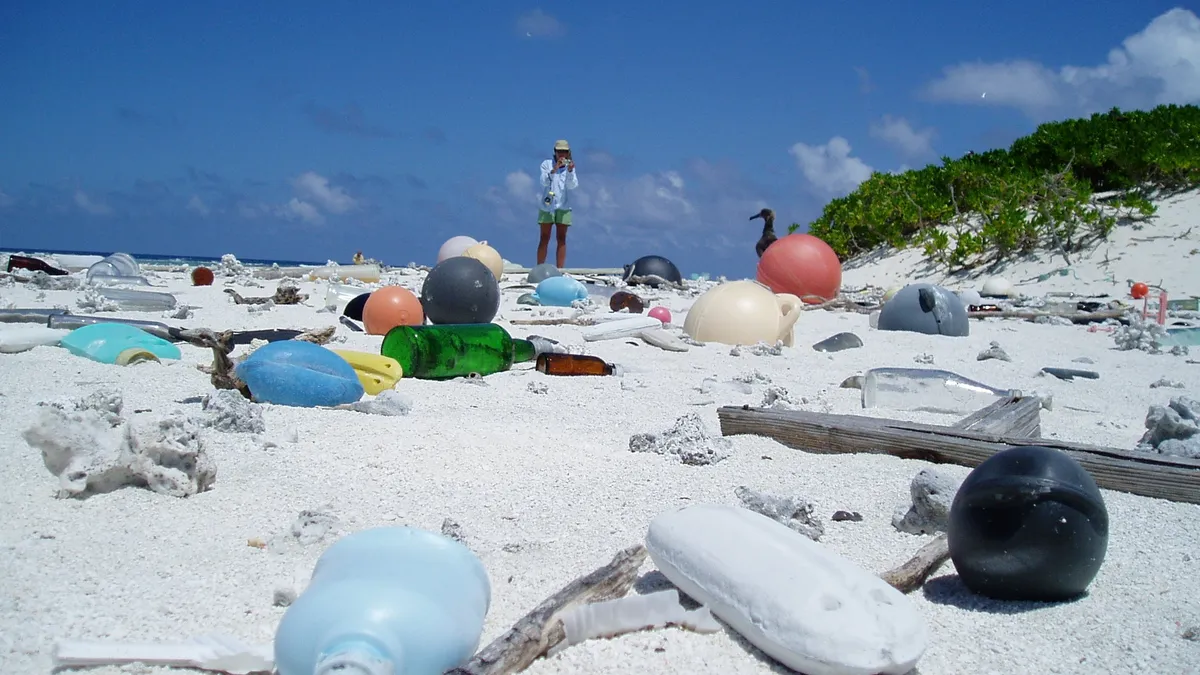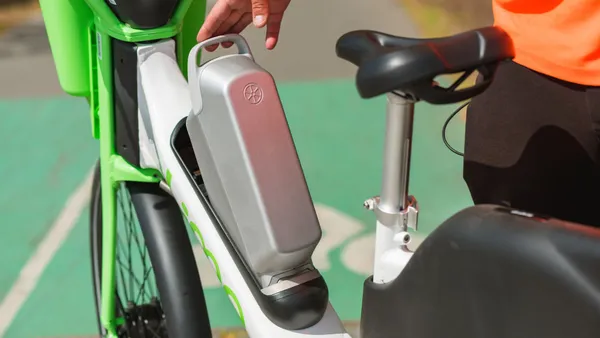Dive Brief:
- Several of the world's largest plastic chemical manufacturers have collectively committed $1 billion toward combating plastic pollution, with the goal of reaching $1.5 billion over the next five years, reports the Houston Chronicle.
- The two dozen companies, which include Chevron, Procter & Gamble, ExxonMobil, Shell, DowDuPont, Suez and Veolia, are forming a nonprofit called the Alliance to End Plastic Waste (AEPW), according to a joint press release. AEPW's financial pledge will go toward programs and technologies that aim to minimize, manage and prevent plastic waste.
- In a separate op-ed, Chevron Phillips Chemical CEO Mark Lashier — who described the new group as "corporate citizens" coming together "to demand more of ourselves" — recognized plastic debris to be "one of many materials that end up in the wrong places" but deemed it "a solvable challenge if we make the right choices and focus on the best solutions."
Dive Insight:
While corporate sustainability pledges are a dime a dozen, this joint effort from many of the world's biggest plastic producers (at a time when mounting public pressure could affect bottom lines) comes with notable financial heft. Initial investments and projects include:
-
Creating an incubator with Circulate Capital and SecondMuse to develop and promote plastic recycling technologies,
-
Working with UN Environment to train officials and community leaders in localized waste prevention,
-
Supporting Renewology's Renew Oceans initiative, which aims to divert plastic waste from polluted rivers,
-
Developing a city partnership program to design integrated waste management infrastructure in large urban areas, and
-
Establishing a data initiative to support global waste management programs.
"[Plastic pollution] is a complex and serious global challenge that calls for swift action and strong leadership. This new alliance is the most comprehensive effort to date to end plastic waste in the environment," declared David Taylor, AEPW Chairman and Procter & Gamble CEO, in a statement.
With the global climate crisis poised to reach a point of no return, corporate gestures toward environmental responsibility have become increasingly common — last year's EPA Recycling Summit, for instance, saw a host of industry leaders, big name brands and trade associations pledge to work toward a more resilient materials economy.
Environmental groups, however, remain skeptical of such non-binding commitments — frequently dismissed as toothless "greenwashing" schemes. AEPW's announcement has prompted a similarly caustic response from Greenpeace, which issued a press release characterizing the new group as "a desperate attempt from corporate polluters to maintain the status quo on plastics."
"In 2018, people all over the world spoke up and rejected the single-use plastics that companies like Procter & Gamble churn out on a daily basis, urging the industry to invest in refill and reuse systems and innovation," said Graham Forbes, global plastics project leader at Greenpeace, in a statement. "Instead of answering that call, P&G preferred to double down on a failed approach with fossil fuel giants like Exxon, Shell, Dow and Total that fuel destructive climate change."
"The truth is, we will never escape this plastic pollution crisis through better recycling and waste management efforts — only 9 percent of the plastics ever made have actually been recycled," added Forbes. "But corporations love to use recycling as a crutch to continue production of cheap plastics."
Whether this interpretation proves correct, or whether AEPW actually succeeds in making tangible sustainability gains in the coming years, remains to be seen.















